End-to-end encryption (E2EE) means that only you and the person you're communicating with can access your data. This technology keeps your information safe from prying eyes, including hackers and even service providers. In today's climate, where many worry about data privacy, E2EE is essential. It ensures that your messages are encrypted on your device and remain secure until they reach the recipient. As privacy concerns continue to grow, understanding E2EE can help you protect your sensitive information effectively. By exploring further, you'll discover more about the legal implications and emerging trends in encryption technology.
Key Takeaways
- End-to-end encryption (E2EE) ensures that only the sender and recipient can access the data, enhancing confidentiality and privacy.
- E2EE prevents unauthorized third parties, including service providers, from accessing the content of communications.
- It maintains data integrity during transmission, reducing the risk of unauthorized alterations or tampering.
- E2EE is crucial for protecting sensitive information, aligning with legal regulations like GDPR to avoid penalties.
- As privacy concerns grow, adopting E2EE strategies is essential for organizations to build consumer trust and safeguard data.
Data Security Fundamentals Explained
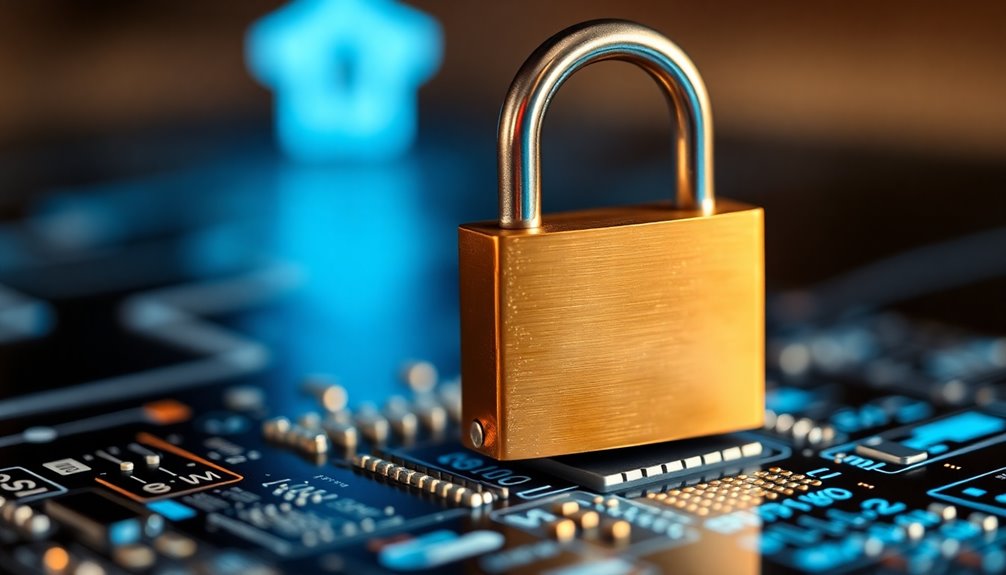
Data security is crucial for protecting sensitive information in today's digital landscape. You need to understand the fundamentals: confidentiality, integrity, availability, and non-repudiation.
Confidentiality ensures only authorized individuals access sensitive data, often achieved through encryption and secure protocols. Integrity maintains data accuracy, preventing unauthorized alterations using digital signatures and checksums. Continuous monitoring of AI behavior is essential for maintaining AI trustworthiness.
Availability guarantees you can access data when needed, supported by backup systems and disaster recovery plans. Lastly, non-repudiation prevents individuals from denying actions they've taken, ensuring accountability through digital signatures. Information security is essential as it protects information from unauthorized access and aligns with these fundamentals.
Each element plays a vital role in safeguarding your data, but challenges remain, like managing encryption keys and ensuring data remains unaltered during transmission.
Prioritizing these fundamentals is essential for robust data security.
Recent Legal Cases Impacting Encryption
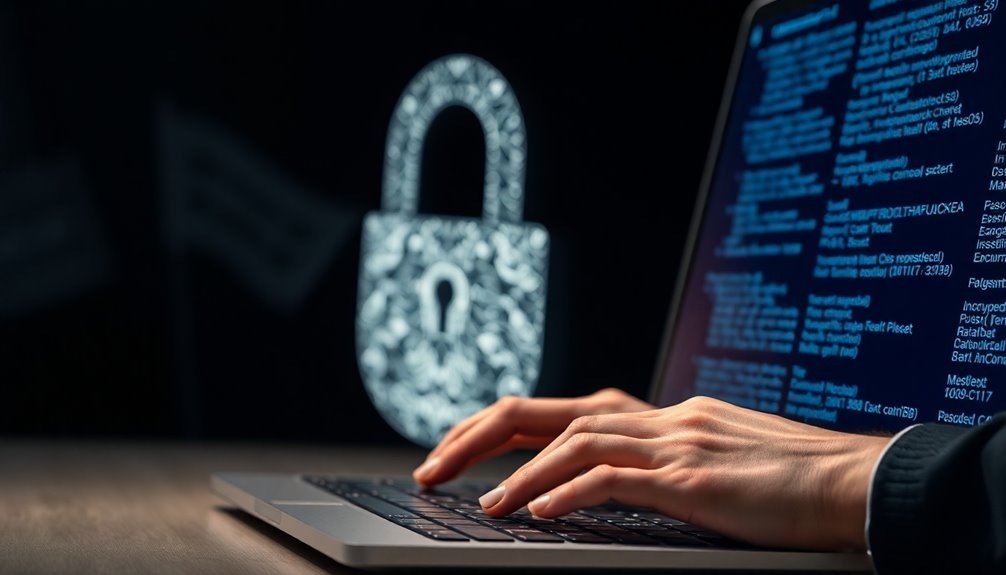
As legal battles over encryption heat up, the implications for privacy and security become increasingly significant.
In the case of Podchasov v. Russia, the European Court of Human Rights ruled that weakening encryption violates the right to privacy, emphasizing its critical role in protecting fundamental rights.
Similarly, the FBI's clash with Apple highlighted privacy concerns when the FBI sought access to an encrypted iPhone, ultimately opting for a hacking tool instead.
These cases illustrate the tension between law enforcement needs and individual privacy rights. The ruling has led to growing concerns about government surveillance and the need for safeguards against state access to data.
Regulatory frameworks like GDPR further reinforce the importance of end-to-end encryption, necessitating compliance to avoid hefty penalties while balancing security and accessibility for authorities.
The legal landscape around encryption continues to evolve, directly impacting your data privacy.
Consumer Privacy Spending Growth
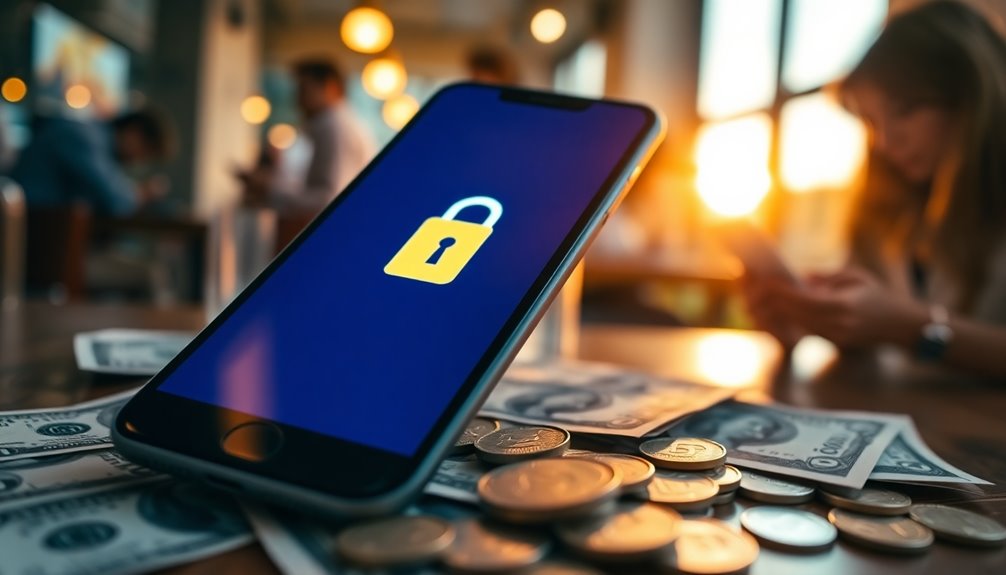
Over the past five years, organizations have significantly ramped up their budgets for consumer privacy, with spending more than doubling during this period. By the end of 2024, large organizations are expected to allocate over $2.5 million annually for privacy initiatives. This growth reflects a booming global data privacy software market, projected to reach $30.31 billion by 2030. Notably, 95% of organizations believe the benefits of investing in data privacy outweigh the costs, often realizing a 1.6x return on investment. As consumer data collection increases, 70% of business leaders report enhanced loyalty and trust due to their privacy investments, showcasing the vital role data privacy plays in today's business landscape. Furthermore, consumer concern about data usage has driven organizations to prioritize privacy spending, as 79% of Americans express unease regarding how their data is handled.
Corporate Encryption Strategies
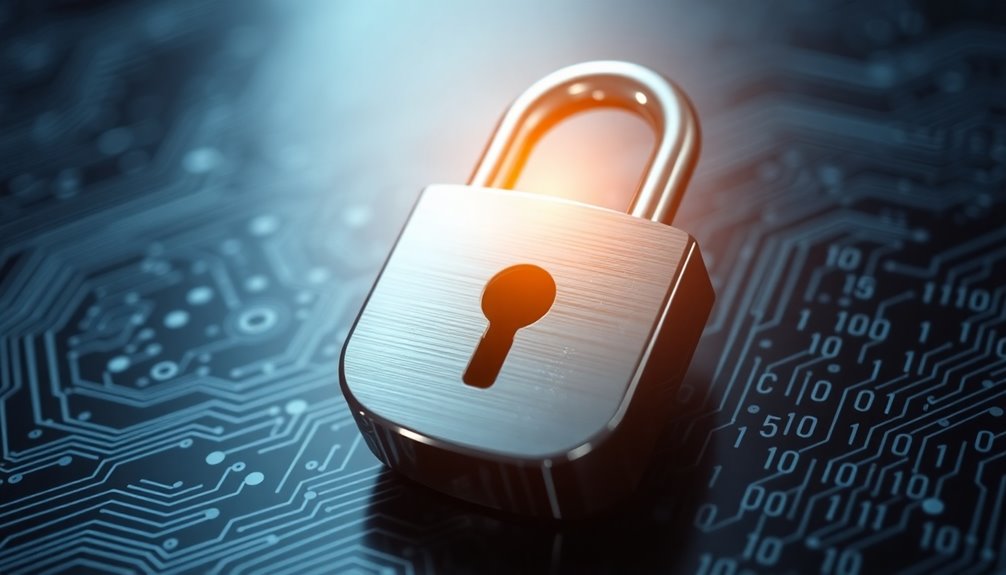
While many organizations recognize the importance of protecting sensitive information, implementing effective corporate encryption strategies is crucial for safeguarding data against breaches and unauthorized access.
Start by choosing the right encryption algorithms like AES for robust security or ECC for efficiency in digital communications. Implement full-disk encryption to protect all data on devices, and use file-level encryption for targeted security.
Ensure data is encrypted in transit with TLS and at rest for comprehensive coverage. Proper key management is vital to prevent unauthorized access, while regular security audits and employee training keep your encryption practices up-to-date. Furthermore, as 95% of organizations experience data breaches due to human error, it underscores the need for robust encryption measures.
Lastly, integrate these strategies with your IT infrastructure to maintain operational efficiency and compliance with regulations.
Election Interference and Encryption

Election interference poses a significant threat to the integrity of democratic processes, and encryption plays a crucial role in both the challenges and solutions associated with this issue.
You might be surprised to learn that encrypted attacks on election systems have surged significantly, with government sectors facing a 185% increase. These attacks, often executed by advanced persistent threats, exploit encryption vulnerabilities to hide malicious activities.
End-to-end encryption (E2EE) can help secure sensitive data by ensuring that only intended recipients access information. By implementing E2EE, you can protect voter registration records and vote tabulation data from unauthorized access, making it harder for cybercriminals to manipulate election outcomes. This is particularly crucial as encryption ensures the confidentiality of data, thereby enhancing the security of election-related information.
Regular security audits and education on cybersecurity risks are vital to safeguarding elections.
Emerging Encryption Technologies Trends
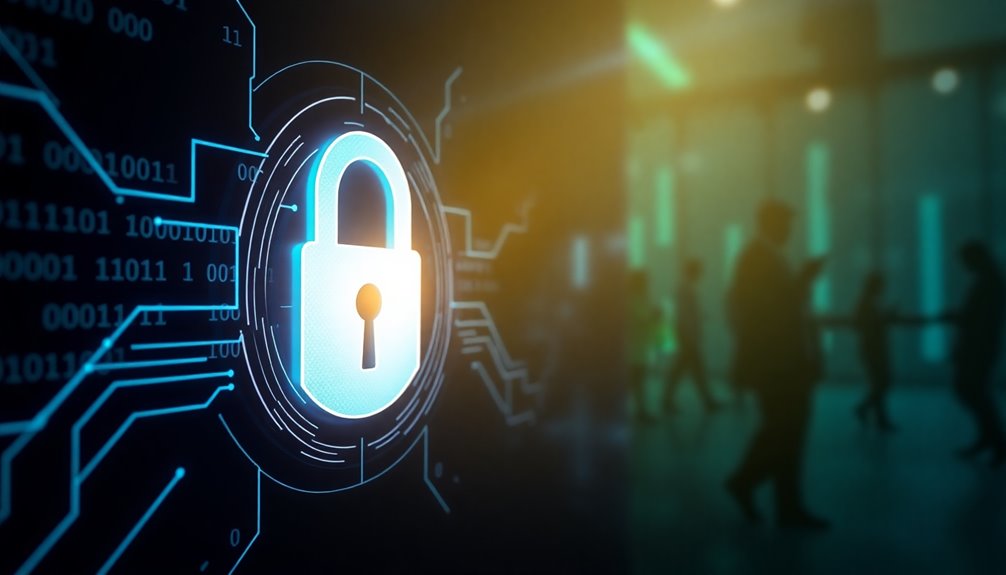
As the landscape of cybersecurity evolves, emerging encryption technologies are gaining attention for their potential to tackle modern threats.
Fully Homomorphic Encryption (FHE) is set to revolutionize AI and blockchain by allowing data to remain encrypted during computation, ensuring utmost privacy. In the next couple of years, you'll likely see its first commercial applications. FHE enables private transactions in DeFi and auctions while keeping personal identifiers hidden.
Meanwhile, quantum computing poses a significant challenge to current cryptographic methods, necessitating a shift to post-quantum cryptography to safeguard against these advanced threats.
Lastly, End-to-End Encryption (E2EE) continues to be crucial for secure communications, reassuring you that your sensitive data remains inaccessible to third parties.
Embracing these trends will be vital for enhancing your data privacy in the evolving digital landscape.
Frequently Asked Questions
Can End-To-End Encryption Protect My Messages From Hackers?
End-to-end encryption (E2EE) can significantly enhance the security of your messages, making it harder for hackers to access them.
However, it's not foolproof. If your encryption keys are compromised or if either your device or your recipient's device is hacked, your messages can still be decrypted.
Plus, metadata remains unencrypted, revealing sender and recipient details.
While E2EE is a strong defense, it's essential to stay vigilant against other potential vulnerabilities.
How Does End-To-End Encryption Affect App Performance?
End-to-end encryption can impact app performance by introducing complexity in algorithms and slowing down processes like key generation and decryption.
You might notice slower loading times, especially with large data sets or frequent updates in collaborative apps.
While encryption enhances security, it requires significant computational resources, which can affect scalability.
Implementing strategies like throttling updates or using optimized databases can help balance performance with the security benefits of end-to-end encryption.
What Happens if I Lose My Encryption Keys?
What if you lose your encryption keys? The moment you realize it, a wave of panic rushes through you.
Without those keys, access to your encrypted data vanishes, leaving your private messages and memories locked away, unreadable. You might need to create new keys or start over entirely.
To avoid this nightmare, regularly back up your keys and store them safely. Don't let a simple oversight turn into a significant loss.
Are There Any Disadvantages to Using End-To-End Encryption?
Yes, there are disadvantages to using end-to-end encryption.
While it protects your messages in transit, it doesn't shield them from vulnerabilities once they reach the recipient's device. If that device is compromised, an attacker could access your decrypted data.
Additionally, metadata like sender and recipient information still gets exposed, which can lead to deductions about your communication.
Finally, it can hinder law enforcement in accessing crucial information during investigations.
How Can I Verify if My App Uses End-To-End Encryption?
Did you know that 81% of people care about end-to-end encryption in messaging apps?
To verify if your app uses it, check for a lock icon next to the send button or message timestamp. Look for unique verification codes that match between you and your contact.
Dive into the app's settings for encryption options, review security features, and consult the documentation for detailed info on how it works.
Stay secure!
Conclusion
In today's digital landscape, understanding end-to-end encryption is crucial for protecting your data. Did you know that in 2021 alone, global spending on consumer privacy reached a staggering $7.1 billion? That's a lot of investment in safeguarding your personal information! As encryption technologies continue to evolve, staying informed empowers you to make better choices about your privacy. So, keep an eye on these trends, and ensure your data remains secure in an increasingly connected world.









